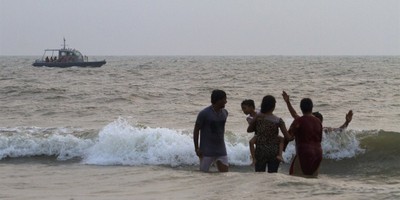They believed in those pathetic dreams in Europe. In the aftermath of World War II, facing the prospect of Soviet domination and wanting to keep the defeated Germans from completing a World War trilogy, the European community, aided by the United States, created the European Coal and Steel Community. A federal Europe was the goal; the original plans included a European Defense Community and a European Political Community, both of which fell through. Eventually, this grew into the European Economic Community.
The European Union was the successor to the EEC, formed in 1993. The current EU members include Austria, Belgium, Bulgaria, Cyprus, the Czech Republic, Denmark, Estonia, Finland, France, German, Greece, Hungary, Ireland, Italy, Latvia, Lithuania, Luxembourg, Malta, the Netherlands, Poland, Portugal, Romania, Slovakia, Slovenia, Spain, Sweden and the United Kingdom.
There was only one problem with this notion: These states had little in common. They did not share a common language; they didn't share common customs (other than, perhaps, a deep-rooted history of anti-Semitism); they didn't even share basic economic principles. This created potential for tremendous conflict within the Union.
The most obvious success for the EU, however, was the Euro -- the official currency for Austria, Belgium, Cyprus, Estonia, Finland, France, Germany, Greece, Ireland, Italy, Luxembourg, Malta, the Netherlands, Portugal, Slovakia, Slovenia and Spain. It is the second largest reserve currency on the planet, after the dollar.
Recommended
With the integrated economic community, however, came a serious problem: If any of the member states spent beyond their capacities, the others would have to pick up the slack. And that's precisely what happened. Greece is bankrupt. So is Spain. So is Ireland. The bleed-over is corrupting the economies of the other Euro members.
This week, the Euro members got together to attempt to solve the crisis. Many of the members are no longer interested in bailing out Greece -- they are sick of the redistributive socialism of the eurozone. They don't want to have to create slush funds for the different countries to raid based on how much they feel like spending. The grand Lennon-esque experiment is failing. As the Financial Times reported, "officials described mounting concerns that the summit will fall well short of market expectations."
The Dutch government will fall unless the crisis is solved. So will the Italian government. So will the entire EU, according to Alan Greenspan. "At the outset of the creation of the euro in 1999," Greenspan said, "it was expected that the southern eurozone economies would behave like those in the north; the Italians would behave like Germans. They didn't. Instead, northern Europe fell into subsidizing southern Europe's excess consumption, that is, its current account deficits." In short, said Greenspan, the countries comprising the EU are incompatible. "The effect of the divergent cultures in the eurozone has been grossly underestimated."
Lennon's one-world concept was a communist one. "Imagine no possessions / I wonder if you can / No need for greed or hunger / A brotherhood of man / Imagine all the people / Sharing all the world." Lennon got his wish in soft form in the creation of the European Union. The result: class warfare in the extreme -- a racial powder keg ready to blow -- and full-scale bankruptcy. Now the EU will revert to what it has always been: a loose agglomeration of nations, often in conflict with one another. That's the way the world works. That's the way the world will always work. And that is not a bad thing. Better that some nations stand for individualism, freedom and entrepreneurialism than that we all stand for redistributionism and the spineless multiculturalism that results in destruction of standards.

























Join the conversation as a VIP Member